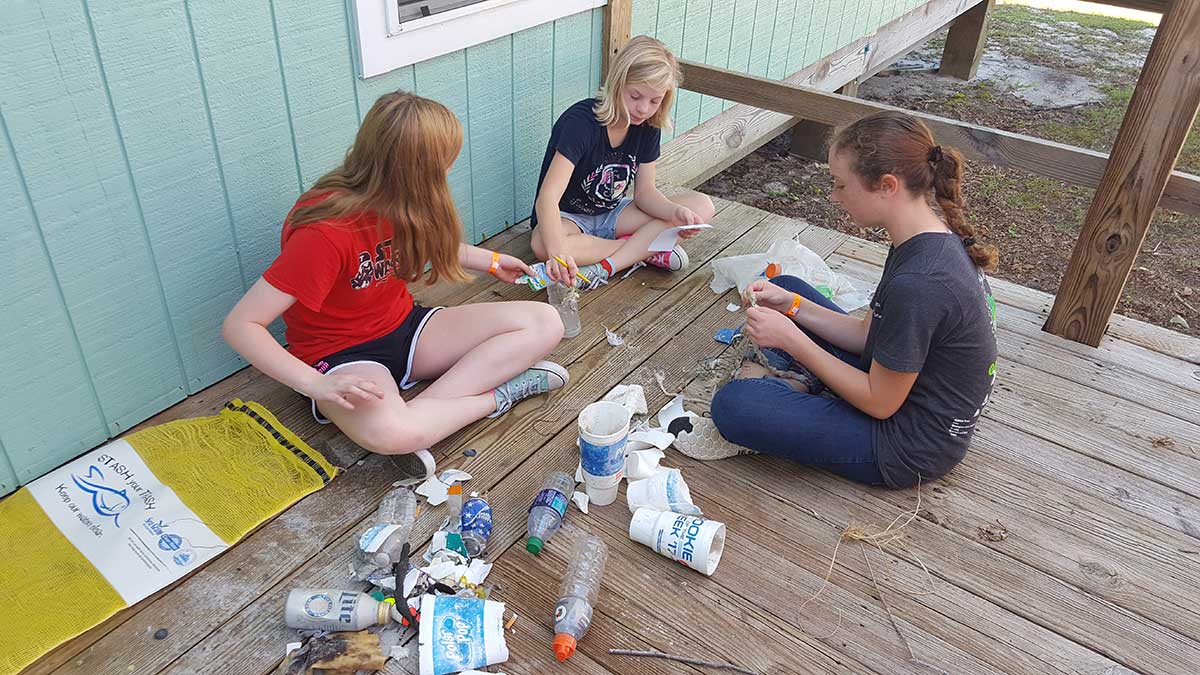
By 2050, it is estimated that there will be more plastic in the ocean than fish (by weight). Since people caused the problem, human actions are also the solution, but only if we are aware of it. Discovery Hall Programs hopes to raise awareness with a new class for our school year visitors titled ‘What’s in the water – it’s marine debris’.
The new class addresses pollutants, trash, and plastics and how these items make their way into the ocean via watersheds. Students learn about the different kinds of debris, the sources of debris, and debris’ harmful effects. The class incorporates core concepts, such as chemical versus sediment pollution, discharge, dissolved versus particulate materials, and macro versus microplastics.
The class also touches on ocean currents discussing what scientists have learned by studying tennis shoes and rubber duckies and how currents function to form heavily polluted areas known as garbage patches. The class ends with a consideration of potential solutions to the problem of marine debris.
As is true of any Discovery Hall Program class, this new class includes a focus on hands-on and outdoor activities, which have been a hit among different grade levels so far. Understanding of marine debris is tested through a rapid-fire game. Timelines of degradation or break down rates of common debris items are constructed in the classroom, often with hilarious results. Students grasp some of the problems that debris creates for marine animals by simulating an animal feeding. As a service activity, students collect and graph data about marine debris practicing those all important math skills.
One important topic students are introduced to during the class is plastics, specifically macro and microplastics. They learn where plastics in the ocean come from, how common plastics truly are in our world today, and reflect on whether plastics ever truly go away. Incorporating some of the research at the Dauphin Island Sea Lab, students consider the hows and whys of plastics’ effects on marine animals and their environment.
Marine debris is a significant issue in Alabama, the Gulf of Mexico, and around the world. Discovery Hall Programs hopes this new class, developed with funding from the Gulf of Mexico Alliance Gulf Star program, increases student awareness of the problem, while also increasing students’ understanding of the ocean.
To bring your students to the Dauphin Island Sea Lab to experience this new class or any of our other engaging classes, visit www.disl.org/dhp or call 251-861-2141.
What's in the Water, DHP Class from Dauphin Island Sea Lab on Vimeo.